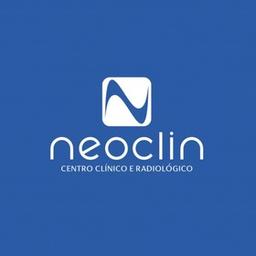Additional Filters
Recommended dental implant dentists
11 dental implant dentists
Dra. Fabiana Comoti
Dental Surgeon in São Paulo
Dentist
Dr. Vanessa Ferreira Marques da Silva
Dentist at Clínica Sorriso Martins in São Paulo
Dentist
Instituto Odontologico Dr. Ronei Guidão
Dentist Specializing in Aesthetic Dental Prosthesis and Implants in Brasília
Dental implant dentist
Dr. Beni Adriano Radzvinauskas
Dentist, Specialist in Oral and Maxillofacial Surgery in São Paulo
Dentist
Video consultation
Video consultation
Dr. Henry Perlovsky
Oral and Maxillofacial Surgeon in São Paulo
Oral and maxillofacial surgeon
Dr. Rosangela Novais Pereira
Dentist and Implantologist in São Paulo.
General dentist in pediatric dentistry
Dra. Fernanda Faria Ceccon
Dentist and dental surgeon in Mogi das Cruzes
Dentist
Dr. Silvana Guerra
Implant dentist specializing in oral rehabilitation in São Paulo
Dentist
NeoClin
Dental Clinic in Carmo
Dentist
Patients seeking dental implant dentist also looked for:
Dental implant dentists recommended by city
- Dental implant dentist in Sao Paulo
- Dental implant dentist in Jundiai
- Dental implant dentist in Recife
- Dental implant dentist in Porto Alegre
- Dental implant dentist in Campinas
- Dental implant dentist in Sao Luis
- Dental implant dentist in Anapolis
- Dental implant dentist in Campo Grande
- Dental implant dentist in Sao Jose dos Campos
- Dental implant dentist in Rio Branco
Patients seeking dental implant dentist also looked for:
General information on medical treatment
What are dental implants and how do they work?
Dental implants are a modern and effective solution for those who have lost one or more teeth. They consist of titanium devices that are surgically placed in the jawbone or maxilla to replace the roots of lost teeth. After a healing period that can last from 3 to 6 months, the bone integrates with the implant, creating a solid foundation. After this integration, the dentist fixes a prosthesis over the implant, restoring both the aesthetics and function of the original tooth.
The main advantage of this innovative technique is its durability. Dental implants are extremely resistant and have the ability to precisely mimic the appearance of natural teeth. This makes them one of the best alternatives for those who need dental rehabilitation, offering a solution that not only resolves aesthetic problems but also functionally returns the ability to chew comfortably.
Types of dental implants
There are various types of dental implants, and choosing the most appropriate one depends on the patient's oral health conditions and the amount of available bone. Each type offers specific benefits, and the decision should be made by a specialized dentist who will evaluate the best option for the case.
Endosseous implant
This is the most common type of dental implant. It is inserted directly into the jawbone or maxilla, providing excellent stability and integration with the bone over time. The endosseous implant is ideal for patients who have sufficient bone to support it and offers lasting results.
Subperiosteal implant
When the patient has little available bone, the subperiosteal implant is an alternative. It is placed below the gum, over the bone, instead of being inserted directly into it. This type of implant is used in cases where the endosseous implant is not viable due to lack of bone.
Zygomatic implant
For cases of severe bone loss, the zygomatic implant is an innovative solution. It is fixed in the zygomatic bone, located in the cheek region, allowing patients with significant bone loss to still benefit from dental implants.
The choice of the most appropriate type of implant should be made by a specialized dentist, who will consider factors such as bone and gum health to ensure the best possible treatment.
Cutting-edge technologies in implantology
Technological evolution has revolutionized the field of dental implants, with innovations that increase patient comfort and procedure precision. Digital planning with 3D scanning allows creating precise virtual models of the patient's arch, ensuring a perfect fit and minimizing post-operative complications.
Computer-guided surgery offers greater safety and more predictable results. Using surgical guides manufactured with 3D printers, implantologists can position implants with millimetric precision, reducing risks and patient recovery time.
Who can benefit from dental implants?
Dental implants are ideal for people who have lost one or more teeth and have good oral health conditions. However, the patient's general health should be considered, especially for those with chronic diseases such as diabetes, which require additional monitoring. Patients in the growth phase may also not be suitable for the procedure until bone development is complete, to ensure implant stability.
Additionally, it is essential that the gums are healthy and that there is sufficient bone to support the implant. If there is bone loss, the dentist may recommend bone regeneration treatments before the procedure. Therefore, a detailed medical evaluation performed by a specialized dentist is essential to ensure that the implant is the best option for each patient.
Medical conditions and dental implants
Certain medical conditions can influence the dental implantation process, requiring special care. Patients with osteoporosis may need more rigorous bone evaluations and potential preliminary treatments to strengthen the maxillary or mandibular bone.
Glycemic control is crucial for diabetics who wish to have implants. Recent studies demonstrate that, with well-controlled glucose levels, diabetics can achieve success rates similar to those of patients without the condition, although healing time may be slightly prolonged.
Advantages of dental implants
Opting for dental implants offers a series of benefits that make this option the most indicated for replacing lost teeth. The main advantage is durability: with proper care, implants can last a lifetime, offering a permanent solution without the need for constant replacements, as happens with dentures.
Additionally, implants provide better aesthetics, as they are custom-made to integrate perfectly with natural teeth, resulting in a harmonious and natural smile. They also guarantee comfort, since they are securely fixed, avoiding discomfort when speaking or chewing. Another important benefit is bone preservation: by replacing the root of the lost tooth, the implant helps prevent bone loss, maintaining facial structure and preventing changes in face shape.
Immediate implants vs. conventional implants
The debate between immediate and conventional implants has gained relevance in modern dentistry. Immediate implants are placed on the same day as the extraction of the compromised tooth, reducing the number of surgical procedures and accelerating the patient's aesthetic rehabilitation.
In contrast, conventional implants follow the traditional protocol with a healing period between extraction and implantation. Each approach has specific indications:
- Immediate implants: ideal for anterior teeth with controlled infections and adequate bone
- Conventional implants: recommended for cases with severe infections or significant bone deficiency
Stages of the dental implant process
The dental implant process involves several essential stages to ensure treatment success.
First, an initial evaluation and planning is performed, where the dentist conducts clinical and imaging examinations to analyze the patient's oral health, the amount of available bone, and gum condition. Based on this, the best treatment plan is developed.
The second phase is implant placement, which is surgically performed in the jawbone or maxilla under local anesthesia. The titanium implant functions as the new root of the lost tooth and begins the post-operative period of rest and pain control.
After placement, the healing and bone integration period is necessary for the implant to integrate with the bone, a process that takes 3 to 6 months. This ensures implant stability before prosthesis placement.
Finally, in prosthesis placement, a personalized crown, bridge, or denture is fixed over the implant, restoring masticatory function and smile aesthetics in a lasting and natural way.
Advanced biomaterials in implantology
Advances in biomaterials have transformed the field of dental implants, with treated surfaces that promote better osseointegration. Zirconia implants have emerged as an alternative to traditional titanium, offering excellent biocompatibility and superior aesthetic results, especially for patients with thin gum lines.
Regenerative materials such as collagen membranes and growth factors derived from platelet-rich plasma (PRP) are increasingly being used to improve bone regeneration in complex cases. These innovations allow patients previously considered non-candidates to now receive implants with high success rates.
Essential care after dental implant
After dental implant placement, it is important to follow some care guidelines to ensure that the treatment is successful and lasts for a long time. Keeping the mouth clean is essential to prevent infections, so it is recommended to brush teeth gently and use dental floss regularly, in addition to possible mouthwashes indicated by the dentist.
In the first days, it is better to avoid hard, sticky, or hot foods that may interfere with healing. It is also important not to smoke, as smoking can harm recovery and affect implant success. Additionally, it is essential to attend regular appointments so the dentist can monitor healing and whether the implant is integrating correctly with the bone.
Specific hygiene protocols for implants
Maintaining dental implants requires specific techniques that differ from natural teeth care. Interdental brushes and oral irrigators have become indispensable tools in the hygiene arsenal of patients with implants, reaching areas that conventional brushes cannot adequately access.
Non-abrasive cleaning products are fundamental to preserve both the implant and the prosthesis. Dentists recommend:
- Soft brushes specific for implants
- Non-fibrous dental floss
- Alcohol-free mouthwashes with specific antimicrobial agents
The role of a dentist specialized in dental implants
Choosing a dentist specialized in dental implants is essential to ensure treatment success. A good professional should have extensive experience in performing implants, in addition to in-depth knowledge of oral anatomy and the most advanced dentistry techniques. It is essential that the dentist stays updated on new materials and procedures, ensuring that patients receive the best care and the most effective results possible.
When choosing a dentist to perform the implant, it is important to verify their qualifications and experience, in addition to looking for evaluations from other patients. A well-structured office with a safe and comfortable environment is also crucial for good care. Platforms like AvaliaMed are excellent for helping in the research and selection of specialized dentists, providing confidence that the professional is highly recommended and well qualified.
Training and accreditation in implantology
Specialization in implantology requires rigorous training beyond dentistry graduation. Specific postgraduate courses, with an average duration of 24 to 36 months, qualify the professional with in-depth knowledge in surgery, prosthetics, and periodontics applied to implants.
Accreditation by recognized professional associations ensures that the dentist follows updated scientific protocols. When seeking a specialist, verify their training at recognized institutions and participation in societies such as the Brazilian Dentistry Association (ABO) and specific implantology associations, which require continuous updating of their members.
How dental implants impact oral health and quality of life
Dental implants not only restore smile aesthetics but also greatly improve the patient's quality of life. They allow efficient chewing and clear speech, in addition to helping restore confidence, as the patient can smile and communicate without concerns about appearance or discomfort.
Over time, implants also contribute to overall oral health. They prevent problems that can arise with tooth loss, such as displacement of remaining teeth, bone loss, and chewing difficulty. In this way, implants help preserve mouth structure and maintain good oral function in the long term.
Psychological impact of dental restoration
The recovery of masticatory function and aesthetics through dental implants goes beyond physical benefits, profoundly reaching the patient's psychological well-being. Recent studies demonstrate significant reduction in social anxiety and depression indices in patients after completion of implant treatment.
Recovered self-confidence positively affects social and professional interactions. In satisfaction surveys, patients report improvement in sleep quality and reduction of appearance-related stress, demonstrating the holistic impact that successful implants have on the individual's overall health.
Cost-benefit considerations of implants
Although the initial investment in dental implants may seem high compared to other alternatives, a long-term cost-benefit analysis reveals significant economic advantages. Removable prostheses and fixed bridges frequently need periodic replacements and adjustments, generating recurring costs.
Dental implants, with their superior longevity, represent savings throughout the patient's lifetime. Considering aspects such as:
- Average durability above 20 years with adequate maintenance
- Reduction of problems with adjacent teeth
- Lower need for future interventions
- Bone preservation that prevents additional treatments
Telemedicine and remote monitoring in implantology
The digitalization of dentistry has incorporated telemedicine tools in monitoring patients with dental implants. Virtual consultations allow implantologists to evaluate initial aspects of healing, identify early complications, and adjust post-operative recommendations without the need for patient displacement.
Specialized applications facilitate photographic recording of evolution and direct communication with the professional. This hybrid monitoring, combining essential in-person consultations with complementary remote monitoring, optimizes patient time and allows faster interventions when necessary, elevating satisfaction and treatment success rates.
Myths and truths about dental implants
Misinformation about dental implants still persists, generating unnecessary fears in potential patients. Contrary to common myths, modern implantology procedures are minimally invasive and performed with effective anesthesia, resulting in post-operative discomfort generally less than that of simple dental extractions.
Longitudinal studies prove success rates above 95% in healthy patients who follow professional recommendations. The idea that implants always reject is unfounded – with adequate medical evaluation and correct technique, implants integrate predictably with bone, functioning indistinguishably from natural teeth for decades.
Why choose AvaliaMed for consultation with dentists in dental implants
Choosing AvaliaMed to find dentists specialized in dental implants is an excellent option for those seeking qualified and reliable professionals. The platform offers a comprehensive database with specialized dentists who have registered, allowing patients to choose among various highly recommended professionals, based on evaluations from other patients.
In addition to ensuring confidence in the choice, AvaliaMed facilitates the search for dentists who meet each patient's specific needs, such as experience in performing dental implants and the use of the most modern techniques. The platform is a safe and practical tool for those who want to find the ideal professional to perform the dental implant procedure, ensuring effective treatment and peaceful recovery.
Frequently Asked Questions
Disclaimer
This website provides general information and insights from third parties. It is not a replacement for professional medical advice. Please consult a healthcare professional before making any decisions based on the information on this website. Be aware that you bear full and exclusive responsibility for the use of this website and its contents.
About
Contact UsAbout AvaliaMedPrivacy PolicyTerms of UseAccessibility StatementList your Practice on AvaliaMedPhoto GalleryMedical ArticlesLog inSpecialities
Aesthetic medicineOrthopedic SurgeonsGynecologistsPlastic SurgeonsDermatologistsEye DoctorsDentistsUrologistsClínicasHospitals
Sirio-Libanes HospitalAlbert Einstein Israelite HospitalHospital of the ClinicsSamaritano HospitalAlbert Sabin Israelite HospitalTreatments
Botox injectionDermoscopyColposcopyTummytuckIVFTooth Implantation ProcedureScoliosisPain managementCataract surgeryHypospadias repairTreatments
Cardiac catheterizationGastroscopyHeadachesADHD in AdultsFace sculpterExtractionsOrthopedic consultationStrabismus surgeryPregnancy followupBreast lift









